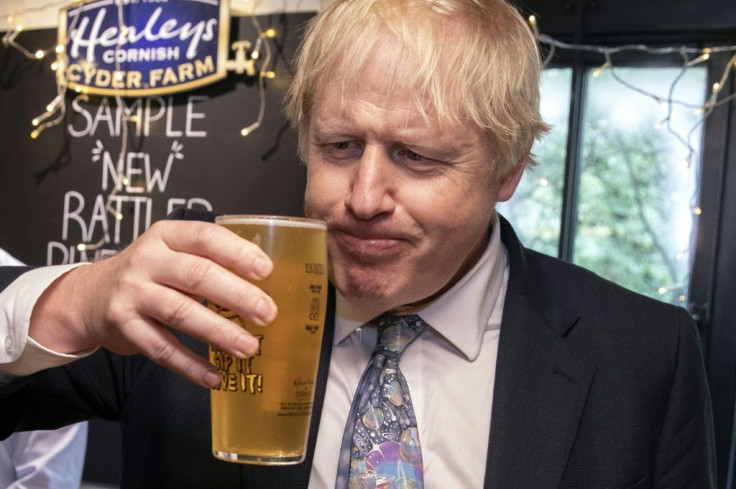Poll Shows UK Tories Headed For Comfortable Win

British Prime Minister Boris Johnson's Conservatives are heading for a comfortable win in next month's election, according to a detailed new poll, amid reports Thursday that the rival Labour party is refocusing its strategy.
The YouGov survey published late Wednesday said if the contest were held now, the Conservatives would snatch 44 seats from the main opposition party to win a 68-seat majority in the House of Commons.
The poll -- the biggest so far in this campaign to predict election results seat-by-seat -- uses a model that correctly forecast 93 percent of seats in the last election in 2017, according to YouGov.
Britain votes on December 12, with Johnson hoping to secure a majority to be able to push through his plan to leave the European Union at the end of January.
The data showed larger swings from Labour to the Conservatives in areas that are more pro-Brexit, especially in England's northern and central regions.
Labour has promised a new referendum on Brexit, and although leader Jeremy Corbyn says he would be neutral, many of his top team have said they would campaign to stay in the EU.
"As expected, the key thing deciding the extent to which each of these seats is moving against Labour (is) how that seat voted in the European Union referendum" in 2016, said Chris Curtis, YouGov's political research manager.
The Tories are keen not to seem complacent, however.
Dominic Cummings, a Johnson advisor who masterminded the 2016 Brexit campaign, warned just hours before the YouGov poll was published that the race remained tight.
"As someone who has worked on lots of campaigns, things are much tighter than they seem and there is a very real possibility of a hung parliament," he wrote in personal blog post addressed to Brexit supporters.
"Without a majority, the nightmare continues. All other MPs will gang together to stop Brexit and give EU citizens the vote," Cummings added.
Johnson, who took over a minority administration in July, missed his first Brexit deadline of October 31 due to opposition in parliament.
If his centre-right Conservatives win what will be the third election in four years next month, he has vowed to put his Brexit deal to MPs before Christmas.
He hopes to rush it through in time for Britain to leave the EU on the next deadline of January 31.
The YouGov poll predicts the Conservatives' total seat count would climb to 359 out of a total of 650, compared to 211 for Labour -- representing a 51-seat loss for the left-wing party.
"In terms of seats won, this would be the Conservatives' best performance since 1987," said the pollster, which analysed data including interviews with around 100,000 people.
The survey offered little consolation for Britain's smaller parties, which all oppose Brexit.
It envisages the Scottish National Party (SNP) gaining eight seats to 43, but the Liberal Democrats picking up just one extra seat, while Welsh party Plaid Cymru would remain on four and the Green Party on one.
Labour, which has been consistently behind in all polls for months, is now set to refocus its struggling campaign on constituencies that voted for Brexit in 2016, the BBC reported Thursday.
This will see more airtime given to Labour MPs who wanted to leave the EU, and more activists sent to Leave-voting seats.
The party will also reportedly emphasise that its plan for a new referendum is not a smokescreen to reverse Brexit but intended to give voters a genuine choice.
Labour may take heart from the YouGov tally showing that at least 30 seats earmarked as Conservative gains are still within five percent points reach, while several other recent polls show a closer contest overall.
Elsewhere, the respected Institute for Fiscal Studies (IFS) think tank on Thursday criticised spending claims made by both Labour and the Conservatives.
Labour have outlined a huge programme of public investment and nationalisations, while the Tories have also promised to end a decade of austerity.
But the IFS said neither were offering a "properly credible prospectus" in their manifesto.
© Copyright AFP 2024. All rights reserved.





















